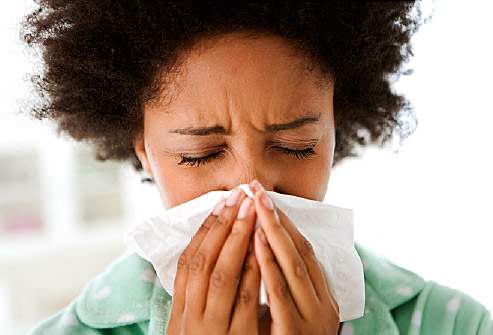Fight off flu
Flu is not something to be sneezed at. In fact, worldwide up to five million people get seriously ill during the ‘flu season’ and around a quarter of a million die from it. It makes sense to take the necessary precautions to stay well this season.
Winter is often referred to as flu season because we spend more time indoors and have tend to closer contact with other people who may be carrying germs.
What exactly is flu?
Flu is a viral infection that targets your head and chest. You’ll have a runny or stuffy nose (sometimes both in the same day), watery eyes, probably a sore throat and perhaps a cough. Your body will hurt, you’ll be tired, and you’ll probably run a fever.
How do you know you have flu?
You may experience some of these symptoms:
- A high fever (higher than 39°C) with chills
- Dry cough or sore throat
- Blocked nose or nasal discharge
- Sweating and shivering
- Muscle aches and pains, especially in the legs
- Fatigue and wanting to sleep all day
SEE MORE http://www.all4women.co.za/
What is a cold?
Colds are viruses too. According to the Mayo Clinic there are more than 100 viruses that cause colds. Like flu, colds hit the respiratory system causing a runny or stuffed up nose, watery eyes, perhaps a sore throat and sometimes a cough. You might also get a low fever.
Unlike the flu, colds come on slowly. Most people can feel themselves getting sick at least a day in advance.
Remember, taking antibiotics when you have a virus will not help and in some cases do more harm than good. Antibiotics only work on a bacterial infection when you take them when they are not needed; your risk of developing an infection that is antibiotic resistant is increased.
A bacterial infection
A bacterial infection may develop following infection with viral influenza which is when an antibiotic can be taken. Signs of a bacterial infection include: sinus, earache, a sore throat and a cough that lasts longer than seven to 10 days.
4 Ways to fight off flu
A flu vaccine is the first line of defence when it comes to protecting yourself. Here are more ways to stay fighting fit this flu season …

1. Get an annual flu vaccine
Studies show that the flu vaccine reduces the risk of flu by about 50 to 60%. It works by causing antibodies to develop in the body which provide protection against infection.
The World Health Organisation (WHO) and the Centre for Disease Control and Prevention (CDC) monitor each new strain of the flu virus and assess which may be the predominant strains in the following year’s flu season. Using this data, a flu vaccine is developed against the specific flu strains.
“The annual flu vaccine protects you against the current season’s three or four most common flu virus strains,” explains Dr Bobby Ramasia, Principal Officer of Bonitas. “Besides protecting yourself it also protects the people around you it can make the illness milder.”
Everyone should protect themselves against the flu but that those in high-risk groups should definitely be vaccinated. These include: people over 65 years old; those with chronic diseases such as heart disease, diabetes and HIV and anyone with a depressed immune system.
2. Stay hydrated
Dry air, thanks to heaters and air conditioners, dehydrate mucous membranes and reduce their effectiveness of keeping diseases at bay. To counter this, keep hydrated by aiming to drink eight glasses of water a day.
3. Wash your hands
Think of everything you and everyone else touches every day, from door handles and railing through to telephones, counters and money. To protect yourself from germs, it’s advisable to wash your hands several times a day. In fact, it’s not a bad idea to wipe down your work areas too.
4. Avoid sick people
This is easier said than done in an office environment, but if you do have a colleague who is coughing and sneezing try and keep your distance.
If you do get sick, take any prescribed medication, stay in bed, drink lots of fluids and give your body time to fight the infection. Both flu and colds are contagious which means you do need to take time off work to recuperate. This will help avoid spreading germs and, with the help of anti-viral medications, supplements and bed rest, you’ll be able to recover faster.

